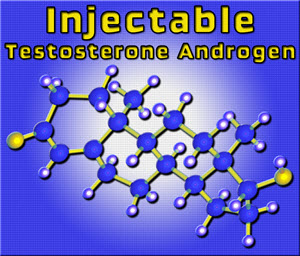Video Link: https://vimeo.com/299962279
Video Download: Click Here To Download Video
Video Stream: Click Here To Stream Video
As with any medical therapy, there are some potential issues that you should be aware of before initiating therapy. Before starting any form of medical  treatment, including Testosterone Optimization, acquaint yourself with the potential risks, side-effects, and drawbacks.
treatment, including Testosterone Optimization, acquaint yourself with the potential risks, side-effects, and drawbacks.
Testosterone Replacement is a fantastic treatment option for patients suffering from Age-Related Low-T, also known as Andropause, but it is essential to recognize the potential issues related to any treatment.
Is Testosterone Therapy Safe?
Testosterone Restoration is a very safe medical treatment, with a low risk of significant side-effects. The risk of most significant side-effects can be mitigated through the responsible use of the Hormone Treatment, or by contacting your prescribing Hormone Doctor as soon as symptoms manifest so that the treatment can be adjusted or suspended.
It is vitally important only to use Testosterone with a legitimate prescription, and not for aesthetic and performance enhancement. Testosterone is truly capable of doing great things for individuals with Low-T, but when used by healthy patients with normal Free and Total Testosterone Levels, it significantly increases the risk of complications.
Testosterone Increases PSA Count
Prostate Specific Antigen is a biological marker that appears in the bloodstream as a result of both Testosterone Treatment and Prostate Cancer. PSA is a byproduct of Prostate Cancer and does not cause Prostate Cancer or increase the  risk of Prostate Cancer. However, because PSA is a sign of prostate cancer, it is vitally important to have PSA Levels checked before initiating therapy, in order both to test for Prostate Cancer and so that the increase in PSA associated with Testosterone Therapy is not mistaken for Prostate Cancer.
risk of Prostate Cancer. However, because PSA is a sign of prostate cancer, it is vitally important to have PSA Levels checked before initiating therapy, in order both to test for Prostate Cancer and so that the increase in PSA associated with Testosterone Therapy is not mistaken for Prostate Cancer.
Common Testosterone Side-Effects
Increased Red Blood Cell Count - Testosterone increases the activity of the bone marrow, which can sometimes lead to increased RBC Count. Healthy Red Blood Cell Levels can be restored by giving blood. Allowing RBC Count to remain high is associated with an increased risk of cardiovascular conditions related to blood clots, so blood donation is a recommendation for all forms of Testosterone Restoration.
Sleep Apnea - Testosterone Creams, Gels, and Injections can exacerbate existing Sleep Apnea symptoms, or cause un-diagnosed Sleep Apnea to become apparent. This risk is higher for patients that are overweight or obese.
Suppression of Fertility and Sperm Count - All men that stay on Testosterone Therapy for any considerable amount of time will start to experience reduced fertility as a result of a suppression of Luteinizing Hormone secretion by the pituitary. Reduced productivity is temporary, and fertility is restored over time as the body slowly regains its ability to produce its own Testosterone.
Testosterone Application Site Irritation - When applied to the skin,  especially via patch, or by intramuscular injection, Testosterone can lead to redness, irritation, and rashes in a minority of cases. This can usually be mitigated by reducing the dose or rotating application sites more conscientiously.
especially via patch, or by intramuscular injection, Testosterone can lead to redness, irritation, and rashes in a minority of cases. This can usually be mitigated by reducing the dose or rotating application sites more conscientiously.
Fluid Retention - In the initial stage of therapy, some men experience fluid build up in the legs and feet. This usually dissipates as the body becomes acclimated to treatment, but if you have a predisposition toward certain heart conditions, you may need to have your dose adjusted. Fluid retention occurs more often in older patients.
Increased Prostate Size - Testosterone can increase the size of the prostate, which can lead to a condition known as Benign Prostate Hyperplasia. Men with enlarged prostates should talk to their doctor before initiating therapy.
Testosterone Abuse Side-Effects
When used carefully under the guidance of a Licensed Hormone Physician, the risks associated with Testosterone use can be reduced significantly. Men and  women that choose to abuse Testosterone have additional risks associated with their use of the treatment:
women that choose to abuse Testosterone have additional risks associated with their use of the treatment:
Increased Anger and Aggression - Testosterone is a male hormone that encourages the expression of manly characteristics, both physical and psychological. The abuse of Testosterone increases an individual's level of aggression and makes them more prone to anger.
Increased Risk of Cardiovascular Complications Including Heart Attack and Stroke - Healthy, normal Testosterone Levels have a protective effect upon the heart, but the Abuse of Testosterone can overwork the heart and lead to enlargement of the heart, as well as unhealthy changes in cholesterol balance.
Liver Damage - The body is only equipped to handle so much Testosterone, and if you take too much Testosterone for too long, this can overwork the liver and directly lead to damage, which also increases the risk of liver cancer.
Development of Masculine Characteristics in Women - Although women can benefit from Testosterone for Menopause or Testosterone for Sex Drive, women are very sensitive to Testosterone and need far, far less than men. Some women use Testosterone for bodybuilding purposes, which is both illegal and dangerous. Symptoms of Female Testosterone Abuse include:
- Shrinking Breasts
- Enlargement of the Clitoris
- Changes in Voice
- Male Pattern Baldness
- Male Body Hair Patterns
- Masculinization of the Fetus During Pregnancy
- Acne
- Menstrual Cycle Abnormalities
Who Should Not Use Testosterone?
- Testosterone should not be used by men that that have Reproductive cancer of any kind, nor should men that are recovering from these cancers seek Testosterone Treatment.
- Women that are nursing or could become pregnant should avoid Testosterone Exposure of any kind to eliminate risk to the born or unborn child.
Find Out if You Qualify for Low-T Treatment
If you believe that you may be suffering from Testosterone Treatment, a Comprehensive Blood Panel can help you discover if you qualify for therapy. We  perform a rigorous set of tests which will measure everything from your cholesterol levels to your PSA count to provide our Board Certified Hormone Specialist with a full picture of your current hormone state and any potential risks that may stand in the way of your therapy.
perform a rigorous set of tests which will measure everything from your cholesterol levels to your PSA count to provide our Board Certified Hormone Specialist with a full picture of your current hormone state and any potential risks that may stand in the way of your therapy.
Contact Us Today For A Free Consultation

Word Count: 962




















